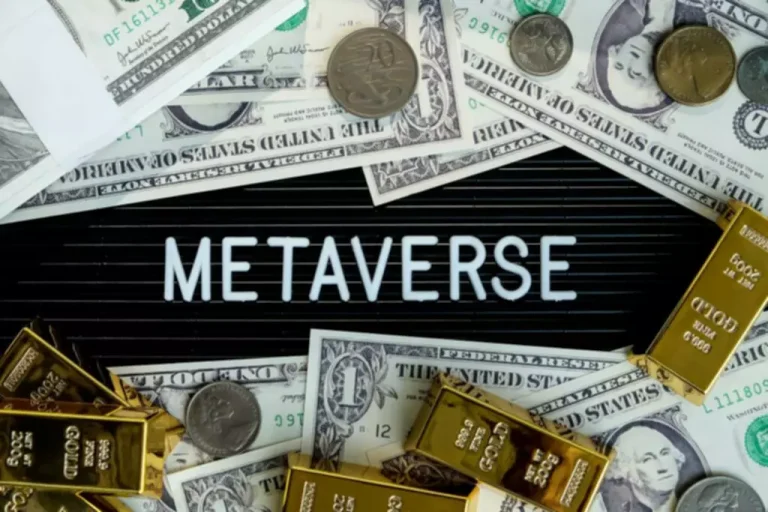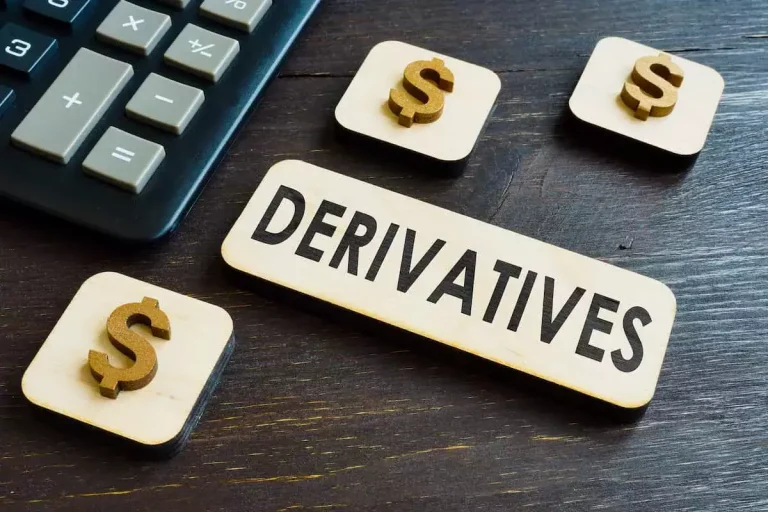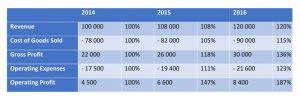That’s why it’s a favourite of economic advisors for retirement savings and other funding targets. Passive, or index-style investments, purchase and hold the shares or bonds in a market index such as the Standard & Poor’s 500 or the Dow Jones Industrial Average. A vast array of indexed mutual funds and exchange-traded funds monitor the broad market as properly as narrower sectors similar to small-company stocks, foreign stocks and bonds, and stocks in specific industries. While some passive buyers like to choose funds themselves, many select automated robo-advisors to build and manage their portfolios. These online advisors usually use low-cost ETFs to keep bills down, they usually make investing as simple as transferring money to your robo-advisor account. While lively investing tends to give attention to particular person securities, passive methods usually involve buying shares of index funds or ETFs that aim to duplicate the performance of main market indexes, like the S&P 500 or Nasdaq Composite.
Morgan Stanley Wealth Management is the trade name of Morgan Stanley Smith Barney LLC, a registered broker-dealer in the United States. This materials has been prepared for informational functions only and is not an offer to purchase or promote or a solicitation of any offer to buy or sell any security or different monetary instrument or to take part in any trading strategy. Past performance is not necessarily a guide to future efficiency. International investing entails larger threat, in addition to greater potential rewards compared to U.S. investing. These dangers embrace political and economic uncertainties of international countries as properly as the danger of forex fluctuations.

Over a current 10-year interval, energetic mutual fund managers’ returns trailed passive funds constantly, says Kent Smetters, professor of business economics at Wharton. Rather, it’s that the three active-fund portfolios would each have held Vanguard U.S. Growth VWUSX as an alternative of the vastly superior Vanguard Primecap VPMCX. By all widespread measures, Vanguard U.S. Growth seemed the better fund in 1992.
Passive buyers are not essentially making an attempt to beat the market. In and around the Nineteen Sixties, a confluence of factors (in explicit the appearance of computers) allowed a small group of academics to show exactly how most money managers had been performing versus the US inventory market. The conclusion was famously articulated by Burton Malkiel in his 1973 book, “A Random Walk Down Wall Street,” during which he argued that “a blindfolded monkey throwing darts on the stock listings” would do in addition to the professionals. Passive investing strategies usually perform better than energetic strategies and price less. Because it’s a set-it-and-forget-it strategy that only goals to match market efficiency, passive investing doesn’t require day by day attention. Especially where funds are involved, this results in fewer transactions and drastically decrease charges.
Disadvantages Of Active Investing
In our expertise, traders are inclined to care extra about elements like risk, return and liquidity than they do fees, so we believe that a mixed strategy may be useful for all investors—conservative and aggressive alike. Deciding between active and passive methods is a highly personal choice. • One potential benefit what are the pros and cons of active investing of having an actual person crunching numbers and making funding selections is that they are able to spot market opportunities and reap the benefits of them. A pc algorithm is not designed to pivot the way a human can, which could benefit the efficiency of an actively managed ETF or mutual fund.

In common, passive investing is healthier for beginners, and lively investing is healthier for experienced traders with data of the market and who understand the chance involved. The $10 trillion invested in active-management funds is a guess that the answer is sure. But increasingly people are saying no, together with the world’s largest asset supervisor, BlackRock, which is paring again its active-equities group. BlackRock is responding to a surge of cash into what’s often known as passive investing. It’s an approach endorsed by Warren Buffett, who thinks the neatest factor your money can do is climb into the hammock and take the the rest of the day with no work. The debate over active vs. passive is upending the funding trade.
Choice Methods
SoFi doesn’t cost commissions, however different charges apply (full payment disclosure here). Hedge funds and personal fairness managers are one instance, charging monumental charges (sometimes 10%, 15%, 20% of returns) for his or her investing acumen. Active investing is what reside portfolio managers do; they analyze and then choose investments based on their progress potential. Active methods have a selection of execs and cons to contemplate when evaluating them with passive strategies. Actively managed investments cost larger fees to pay for the intensive research and evaluation required to beat index returns. But though many managers succeed on this goal every year, few are able to beat the markets consistently, Wharton school members say.

Its articles, interactive tools and different content are offered to you free of charge, as self-help tools and for informational purposes solely. NerdWallet does not and can’t assure the accuracy or applicability of any data in regard to your individual circumstances. Examples are hypothetical, and we encourage you to hunt personalised advice from certified professionals regarding particular investment issues. Our estimates are primarily based on past market efficiency, and past performance is not a assure of future performance.
What’s The Definition Of Lively Investing?
More commonly today, it means putting money into mutual funds whose managers make these case-by-case selections for you. The thought is that skilled cash managers will get better https://www.xcritical.com/ returns than you, the typical investor, will. Either method, anyone is making energetic choices about what’s in a portfolio.
The strategy requires a buy-and-hold mentality, which means choosing shares or funds and resisting the temptation to react or anticipate the stock market’s subsequent move. Deciding whether to invest in energetic or passive funds is a personal alternative that only you can also make. It is decided by your private scenario, goals, and threat tolerance, among other elements.
According to a Morningstar February 2024 evaluation, some examples of actively managed ETFs embrace the Avantis U.S. Equity ETF (AVUS), the Capital Group Dividend Value ETF (CGDV), and the Dimensional Core U.S. Equity 1 ETF (DCOR). An investor should all the time do their very own research earlier than making any investments. You may also keep away from treating the energetic vs. passive investing debate as a compelled dichotomy and choose one of the best funds in either category that fit your targets. The alternative between active and passive investing can also hinge on the type of investments one chooses. Without that fixed attention, it’s easy for even the most meticulously designed actively managed portfolio to fall prey to unstable market fluctuations and rack up short-term losses which will impact long-term targets.
How A Lot Of The Market Is Passively Invested?
While passive investing is extra prevalent amongst retail traders, lively investing has a prominent place available within the market for a number of causes. The purpose of the bet was attributable to Buffett’s criticism of the high fees (i.e. “2 and 20”) charged by hedge funds when historic information contradicts their ability to outperform the market. The closure of numerous hedge funds that liquidated positions and returned investor capital to LPs after years of underperformance confirms the difficulty of beating the market over the long term.

These dangers are magnified in countries with emerging markets, since these nations could have relatively unstable governments and less established markets and economies. The wager was accepted by Ted Seides of Protégé Partners, a so-called “fund of funds” (i.e. a basket of hedge funds). The following table recaps the main differences between passive and lively methods. As a rule of thumb, says Siegel, a supervisor must produce 10 years of market-beating performance to make a convincing case for talent over luck.
Active Vs Passive Investing: An Summary
Passive investing is shopping for and holding investments with minimal portfolio turnover. Active investing is shopping for and promoting investments based on their short-term performance, attempting to beat common market returns. Both have a place out there, but every method appeals to different traders.
Despite the reality that they put plenty of effort into it, the overwhelming majority of of active fund managers underperform the market benchmark they’re making an attempt to beat. Passive investors buy a basket of shares, and purchase kind of regularly, no matter how the market is faring. This strategy requires a long-term mindset that disregards the market’s daily fluctuations. Active and passive investing don’t need to be mutually exclusive strategies, notes Dugan, and a mixture of the 2 could serve many traders. This is why energetic investing isn’t beneficial to most traders, significantly in relation to their long-term retirement financial savings. Active investing is a strategy that involves frequent buying and selling usually with the aim of beating average index returns.
- So is BlackRock, which is the world leader in exchange-traded funds — a fact that certainly played into its decision to cut back on its actively managed funds.
- Get instant entry to video lessons taught by experienced funding bankers.
- Many funding advisors believe one of the best technique is a blend of energetic and passive kinds, which may help decrease the wild swings in stock costs during unstable intervals.
- NerdWallet does not and can’t guarantee the accuracy or applicability of any info in regard to your particular person circumstances.
- Active vs Passive Investing is a long-standing debate throughout the investment community, with the central question being whether the returns from energetic administration justify the next charge structure.
While S&P 500 index funds are the preferred, index funds can be constructed around many classes. For instance, there are indexes composed of medium-sized and small firms. Other funds are categorized by industry, geography and virtually another popular area of interest, corresponding to socially responsible companies or “green” companies.
Active investing requires analyzing an investment for value modifications and returns. Familiarity with basic analysis, similar to analyzing company financial statements, can be important. An energetic investor is somebody who buys shares or different investments frequently. These traders seek for and purchase investments which would possibly be performing or that they believe will carry out.
























